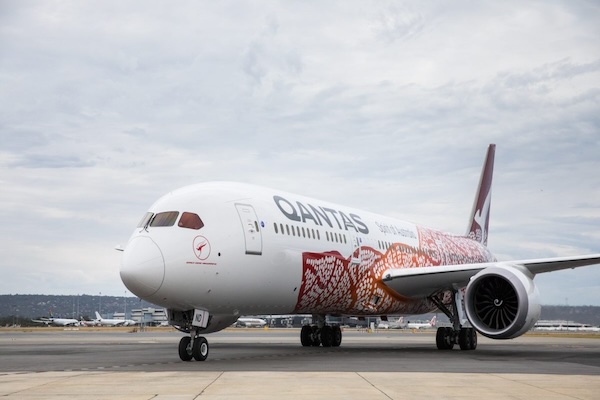A strategic alliance comprising major aviation and energy companies aims to expedite aviation biofuel production. Their collective financial commitments are poised to substantially augment the current growth trajectory of sustainable aviation fuels (SAF).
With Air France-KLM, Qantas, and Airbus spearheading the effort, the newly formed Sustainable Aviation Fuel Financing Alliance (SAFFA) seeks to mitigate carbon emissions in aviation. Through substantial investments, the alliance endeavours to transform infrastructure and foster innovation globally.
Formation of the Sustainable Alliance
The Sustainable Aviation Fuel Financing Alliance (SAFFA) marks a significant step in increasing aviation biofuel production. The alliance features major players such as Air France-KLM, Qantas, and Airbus, which have pledged approximately $200 million collectively. Qantas has notably committed $50 million from its climate fund established in 2023, already featuring a partnership with Airbus for sustainable aviation fuel (SAF).
The establishment signals a concerted effort to bolster SAF technology development and production. The initial focus is on repurposing existing infrastructure, primarily within the United States. This approach not only optimises resources but also strategically aligns with the industry’s environmental objectives. As the alliance grows, it plans to expand its efforts across various regions and SAF production pathways.
Investment Strategy and Initial Projects
Qantas and its partners aim to secure priority contracts for sustainable fuel produced by initiatives supported by the fund. This move demonstrates a proactive approach in addressing the high demand and limited supply of SAF, which currently comes at a premium compared to conventional jet fuel.
The alliance’s first significant investment, made in April 2024, was directed towards Crysalis Biosciences, a US-based technology company. By investing in innovative fuel and chemical production technologies, Crysalis aims to rejuvenate chemical manufacturing infrastructure with more sustainable alternatives.
Driving Down Costs and Enhancing Access
According to Vanessa Hudson, CEO of Qantas Group, one of the primary objectives of SAFFA is to reduce the cost of low-carbon fuels. She acknowledges the aviation sector’s challenges in decarbonising and emphasises the necessity of cross-industry partnerships to bridge the gap between supply and demand in this field.
Currently, the disproportionate balance between supply and demand explains why sustainable aviation fuel remains more expensive than traditional jet kerosene. It is crucial for the aviation industry to scale production to make SAF more cost-competitive and widely accessible.
Through collaborations such as these, Qantas is keen on enhancing domestic SAF initiatives, despite lengthy development processes. The alliance’s actions allow access to SAF in international markets, facilitating the industry’s growth on a global scale.
Role of Climate Fund and SAF Partnerships
The climate fund utilised by Qantas underscores the company’s commitment to accelerating the SAF industry. This fund enables investment in pioneering projects and securing supply agreements, particularly in Australia, where new SAF opportunities are emerging but require substantial time to develop fully.
The partnership with Airbus not only strengthens the fund’s initiatives but also integrates advanced aerospace technologies with the energy sector’s sustainable efforts. This symbiosis is key to establishing a robust and resilient supply chain of sustainable aviation fuel for the future.
Strategic Advantages of the SAFFA Fund
Being part of the SAFFA fund provides Qantas and its partners with several strategic advantages. They gain priority access to SAF, which is pivotal amidst current supply uncertainties. The proactive stance of the alliance in investing and innovating within the SAF space places them at the forefront of this transformative sector.
This fund also serves as a catalyst for regional development, focusing on creating infrastructure that can support a more sustainable aviation industry. The diversification of investment across various geographies helps mitigate risks and enhances the potential for positive environmental impacts.
Future Expansion and Sustainability Goals
As the alliance continues to evolve, the scope of its projects will broaden. Initial investments will gradually extend beyond the US to embrace a variety of SAF production methods and regions.
The envisioned growth aligns with the broader sustainability goals of reducing the aviation sector’s carbon footprint. By actively investing in SAF and engaging with numerous stakeholders, the alliance intends to lead the conversation on sustainable practices in aviation.
Ultimately, the strategic movements made by SAFFA intend to set a precedent in the aviation industry, pushing towards a more environmentally responsible future.
Industry Implications and Long-term Impact
The establishment of SAFFA represents a potential turning point for the aviation industry. This initiative could galvanize more widespread adoption of sustainable aviation fuels, influencing industry standards and policies in the long run.
The alliance’s commitment to funding and developing new technologies for SAF highlights the essential role innovation plays in achieving sustainability targets. By driving this change, SAFFA not only addresses current environmental challenges but also paves the way for future advancements in aviation.
The establishment of SAFFA heralds a new era in sustainable aviation, setting a benchmark for industry collaboration and innovation. By investing in production capabilities and technology, this alliance aspires to catalyse a significant shift towards lower carbon emissions in aviation.

